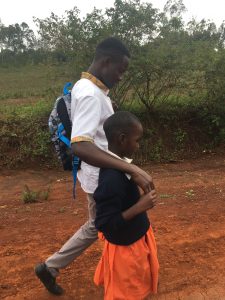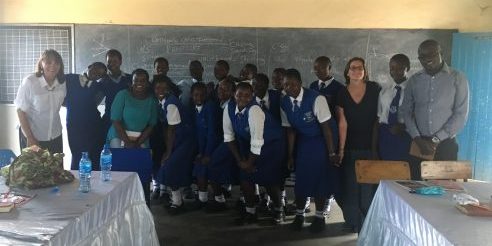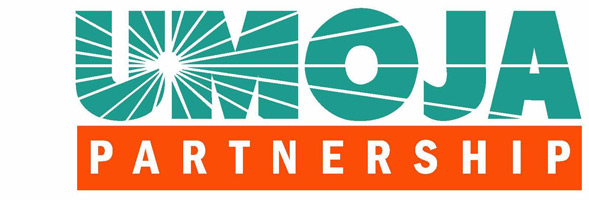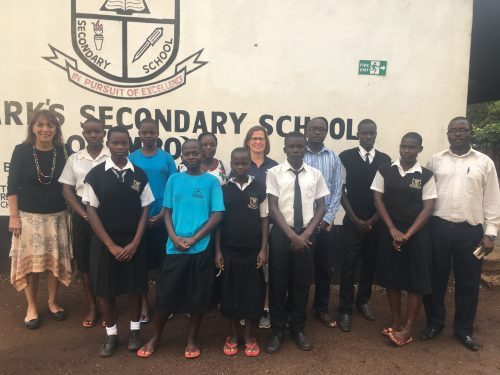by Denise Soltis, Executive Director
As I sit on the first flight from Nairobi, I am reflecting on my first visit to Global Interfaith Partnership’s Umoja Project. I arrived in Kenya with a critical eye, expecting to find some issues, things that were not as we thought. What I found was inspiration.
 These children have struggled against incredible odds, and the Umoja Project not only feeds these kids, we give them hope — hope for a better life where they can take care of their family and some day give back to the project. The speeches they give are so similar that I asked many if they wrote their speeches or had help. They all said no, they wrote them by themselves.
These children have struggled against incredible odds, and the Umoja Project not only feeds these kids, we give them hope — hope for a better life where they can take care of their family and some day give back to the project. The speeches they give are so similar that I asked many if they wrote their speeches or had help. They all said no, they wrote them by themselves.
I think what inspires me most is that when you look at any given school there are Umoja Scholars among the top few students. At Marera Primary School, for example, there are four students in the top six: the position one and three for the boys, and positions 2 and 3 for the girls. The Umoja Scholars are among the few to get direct admit to University from each of the secondary schools as well.
Roseland, the new principal at Mawego Girls Secondary School, said, “to those who much has been given, much is expected.” It is clear that these students are giving their all to do well in school and proceed to the next level. The girls at Mawego actually complained because the new principal made lights out at 10pm instead of 11pm so they have less time to study at night. We saw girls sitting alone in an empty classroom during lunchtime studying, instead of taking recess after lunch.
There was much discussion about additional ways the community could help, but there are many examples of ways that they are already helping. The board of management at Lisuka Primary School has worked with some local donors to get enough maize and beans to feed the whole of class 8 so that the entire class gets the benefit of extra study time, proper nutrition and the ability to focus during school. They have seen the difference the school feeding program makes in our Umoja children and were inspired to spread the benefits to other students.
We learned about the Umoja Project at seven primary schools. At those seven schools there were 1321 Umoja scholars. Many kids share what food they are given with classmates and family members at home.
Every single group we met with had ideas for expansion, including adding more primary schools, funding more secondary students, sending more kids to university, and starting a program for boys similar to GET UP for girls. We have much to discuss in April at our strategic planning meeting!

